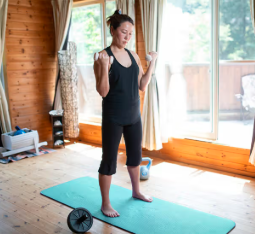Living a healthy lifestyle is often linked with structure, routines, and discipline. We hear advice about eating balanced meals, getting enough sleep, and sticking to regular workouts. While these habits are essential, there is one element of wellness that many adults overlook: play. Adding playful activities into your daily life not only makes the journey toward health more enjoyable but also builds motivation, creativity, and resilience. Play is not reserved for children; it can be a powerful tool for anyone who wants to nurture both body and mind.
Why Play Matters for Adults
When people think of play, they often picture children running around, inventing games, and laughing freely. However, play serves a purpose at every age. For adults, playful activities help reduce stress, spark creativity, and increase energy levels. They allow you to engage in movement without the pressure of meeting strict fitness goals. Play transforms physical activity from something that feels like a chore into something you naturally want to do. It also has social benefits, strengthening relationships with friends, family, or even coworkers when you share joyful activities together.
Reimagining Exercise as Play
One of the easiest ways to weave play into your healthy lifestyle is by changing how you view exercise. Instead of looking at it as a routine task to check off your list, consider movement that feels fun. Dancing around your living room, joining a recreational sports league, or even hopping on a trampoline can provide a great workout while lifting your mood. Playful exercise helps you enjoy the moment rather than focusing only on results. Over time, this shift can improve consistency because you’ll look forward to your activity rather than forcing yourself through it.
Playful Nutrition Habits
Healthy eating can also benefit from a playful mindset. Preparing meals doesn’t have to be a serious process. You might experiment with colorful fruits and vegetables, create fun plating designs, or challenge yourself to cook a new healthy recipe every week. If you have children, involving them in cooking games can make family meals more exciting and encourage everyone to enjoy nutritious foods together. Even small playful touches, like giving your smoothies imaginative names, can make the experience of healthy eating more engaging.
Social Play and Connection
Another wonderful aspect of play is how it brings people together. Social wellness is an important part of overall health, and shared playful activities create lasting memories. Organizing weekend hikes that include friendly challenges, setting up casual backyard games, or simply gathering friends for a lighthearted yoga session can boost your sense of belonging. These moments of connection can help reduce feelings of isolation and make healthy living a shared adventure instead of a solitary effort.
Mindful Play for Stress Relief
Play is not only about active games. Creative and mindful forms of play can be equally powerful. Activities like painting, gardening, journaling with playful prompts, or solving puzzles can ease stress and refresh the mind. These playful practices give your brain a break from routine demands, making space for relaxation and creativity. When combined with physical health practices, they form a well-rounded lifestyle that nurtures both mental and emotional well-being.
Bringing Play Into Your Routine
Adding play to your healthy lifestyle does not require large amounts of time or special equipment. It is more about shifting your mindset and being open to joy. Start small by sprinkling playful moments throughout your day. Take short breaks to stretch and move around in a fun way during work, turn household chores into a mini dance session, or take a walk while playing a lighthearted guessing game with a friend or family member. Over time, these small acts of play build momentum and make wellness feel natural and enjoyable.
Overcoming Barriers to Play
Some adults feel hesitant about embracing play because they think it seems childish or unproductive. It is important to remember that play is not about being immature; it is about reconnecting with a sense of joy that supports health. Another barrier can be the busy pace of daily life. In such cases, scheduling short playful breaks, just as you would schedule meetings or exercise, can help ensure that play becomes a consistent part of your routine. With practice, it shifts from feeling like an extra task to becoming something you genuinely look forward to.
The Long-Term Benefits of Playful Living
When you make play a part of your healthy lifestyle, the long-term rewards are remarkable. Physically, playful activities often improve coordination, flexibility, and stamina. Mentally, they keep your brain sharp by encouraging problem-solving and creativity. Emotionally, they help you release stress and nurture a more positive outlook. Socially, they build bonds that increase happiness and resilience. These combined benefits show that play is not simply a pastime but a powerful tool for sustainable wellness.
A Gentle Reminder to Embrace Joy
Health is not only about rules and structure but also about the joy that makes life fulfilling. Play gives you permission to laugh, to experiment, and to move in ways that feel good. It is a reminder that wellness can be lighthearted as well as serious. By embracing play, you make healthy choices more enjoyable and easier to maintain. You also open the door to a lifestyle that balances discipline with delight.
Final Thoughts
If you have ever felt that staying healthy is too demanding or repetitive, try adding a playful touch. Whether it is dancing while cooking, joining friends for a game in the park, or exploring creative hobbies, play has the power to transform the way you approach wellness. It keeps your spirit energized, your mind refreshed, and your body active. A healthy lifestyle is not just about what you should do but also about what you enjoy doing. By welcoming play into your life, you create a path to health that is both effective and filled with joy.














